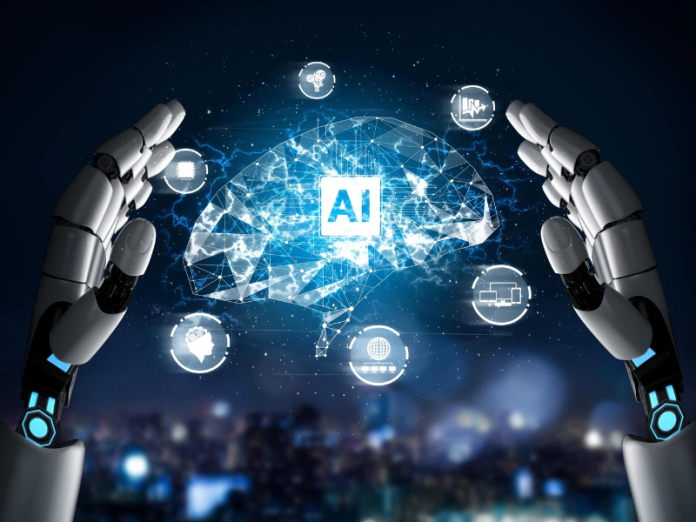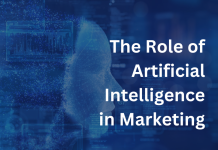The innovative discipline of computer science known as artificial intelligence, or AI, strives to build intelligent computers that are capable of carrying out activities that would ordinarily need human intelligence. Recently, AI has acquired a lot of traction and has become a crucial component of many different industries, including healthcare, banking, transportation, and entertainment. We shall go into the field of artificial intelligence in this essay, looking at its history, uses, and social implications. So, what precisely is AI and how does it operate?
What exactly is AI?
AI is the replication of human intelligence in computers that have been designed to think, reason, and learn similarly to people. It spans a broad range of subfields, including robotics, computer vision, natural language processing, machine learning, and computer vision, all of which contribute to the creation of intelligent systems. The goal of AI is to give machines the ability to detect, understand, and react to their environment in a way that closely resembles human intelligence.
The Development of AI
Although artificial intelligence (AI) has been a notion for ages, considerable progress has only recently been realized. In order to build machines that could mirror human intelligence, the area of artificial intelligence (AI) was founded in the 1950s. Alan Turing, John McCarthy, and Marvin Minsky were early pioneers who helped build the field of artificial intelligence.
AI in Daily Life
Numerous facets of our daily life have been impacted by AI, frequently without our knowledge. AI technologies are now ingrained in every aspect of our digital interactions, from voice assistants like Siri and Alexa to personalized suggestions on streaming services. AI is revolutionizing patient care, medication discovery, and diagnostics in the healthcare industry. In addition, supply chains are optimized, customer service is enhanced, and transportation networks are improved thanks to AI-powered solutions.
How Does AI Function?
To process information and arrive at intelligent choices, AI systems rely on enormous volumes of data and sophisticated algorithms. Large datasets are used to train models for machine learning, a branch of artificial intelligence, in order to find patterns and make predictions or choices. While computer vision enables them to interpret and analyze visual data, natural language processing enables machines to comprehend and produce human language.
The Advantages of AI
AI has many advantages in a variety of fields and spheres. It offers the ability to automate tedious and repetitive jobs, freeing up human workers to concentrate on trickier and more imaginative tasks. AI systems are also capable of quickly processing and analyzing enormous amounts of data, giving insightful information, and assisting in decision-making. Through early detection and individualized treatment regimens, artificial intelligence in healthcare is boosting patient outcomes. AI also has the potential to improve the sustainability, effectiveness, and safety of energy and transportation systems.
Varieties of AI
AI comes in a variety of forms, each with unique strengths and weaknesses. The principal types of AI are as follows:
1. Limited AI
Systems created to carry out particular tasks inside a constrained domain are referred to as narrow AI, also referred to as weak AI. Examples include picture recognition software, streaming services’ recommendation algorithms, and virtual personal assistants like Siri and Alexa.
2. AI generally
The goal of general AI, commonly referred to as strong AI, is to create machines with the same level of intellect as people. These systems would be able to comprehend, pick up, and use knowledge from a variety of fields. Although it is still a goal for academics, general AI has not yet been fully realized.
3. Clever AI
Superintelligent AI describes machines that are more intelligent than people in almost every way. The potential effects of this hypothetical AI technology on society and the necessity for strict regulation and ethical considerations are also brought up.
Five Uses for artificial intelligence
AI is used in many different fields and sectors, revolutionizing how we live and work. Some notable fields where AI is having a big impact are:
Healthcare and AI
Healthcare organizations are utilizing AI to improve diagnoses, create individualized treatment plans, and help with medication discovery. Algorithms for machine learning can analyze medical images, forecast the course of diseases, and enhance patient care.
Finance using AI
AI is essential to risk assessment, algorithmic trading, and fraud detection in the financial sector. Smart conversation bots are used to automate financial processes and provide customer service.
AI in the Classroom
By providing personalised learning experiences, sophisticated tutoring systems, and automated grading, AI is revolutionizing education. Technologies for augmented reality and virtual reality are also being combined to create immersive learning environments.
Transportation and AI
AI-powered autonomous vehicles are revolutionizing the transportation sector. These autonomous vehicles have the ability to raise transportation networks’ general efficiency while also enhancing traffic flow and road safety.
AI in the Media
With personalized content recommendation algorithms, virtual reality gaming, and AI-generated music and artwork, AI is revolutionizing the entertainment business.
The Risks and Difficulties of AI
Although AI has a lot of potential, there are also hazards and challenges that need to be considered. Some significant difficulties include:
1. Ethical issues surrounding the application of AI in touchy areas including bias, security, and privacy
2. Addressing worries about data privacy and security – The potential for job displacement due to automation – Ensuring transparency and accountability in AI decision-making processes
3. The requirement for ongoing oversight and control to stop the abuse of AI technology
The Evolution of AI
The potential for AI to improve and have disruptive effects in the future is enormous. It is anticipated that advances in fields including natural language processing, computer vision, robotics, and machine learning algorithms will result from ongoing research and development. To appropriately utilize AI’s full potential, consideration must be given to its ethical, legal, and societal ramifications.
FAQs About AI
There are three different categories of artificial intelligence: strong, general, and superintelligent. Narrow artificial intelligence is created to carry out particular tasks, such as voice recognition or image classification. Machines with intelligence comparable to that of a human being and capable of comprehending and carrying out any intellectual endeavor are referred to as having general AI. Superintelligent AI is more intelligent than people and has cognitive skills that are unfathomable to them.
Machine learning is one of many technologies that fall under the umbrella term of artificial intelligence (AI). Machine learning is a branch of artificial intelligence that focuses on allowing computers to learn from their experiences and advance without being explicitly programmed. Machine learning, in other terms, enables AI systems to automatically learn from data and adapt.
Automation-related job loss, biased algorithms that result in unfair judgments, and the potential for malevolent use of AI-powered technology are some of the potential concerns linked with AI. Concerns about the ethical ramifications of AI exist as well, including privacy violations and the loss of human control over more autonomous systems.
Though AI has excelled in a number of creative fields, including music and painting, it is doubtful that it will ever fully replace human creativity. By producing ideas or offering inspiration, AI systems can support and improve human creativity, but they lack the emotional and contextual awareness that is essential to creative expression.
Businesses may gain a lot from AI, including increased productivity, better decision-making, and improved consumer experiences. Automating monotonous jobs, streamlining processes, and gaining insightful information from enormous volumes of data are all capabilities of AI-powered systems. Predictive analytics, personalized marketing techniques, and effective resource management are further benefits of AI.
The potential for AI in the future is endless. We might expect that AI will alter our lives more profoundly as technology advances. Artificial intelligence (AI) will continue to drive innovation across industries and change how we live and work, from improvements in robots to developments in natural language processing and computer vision.


